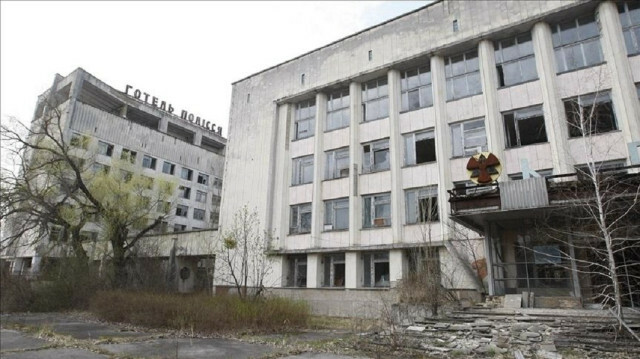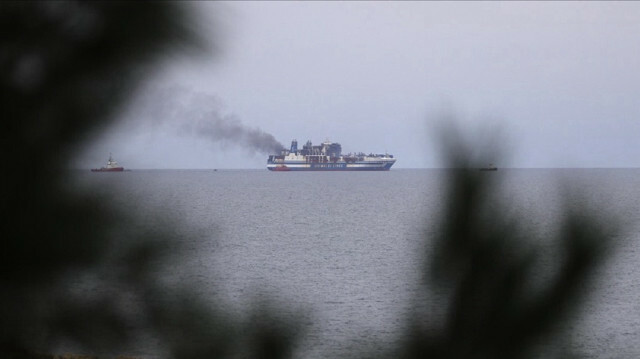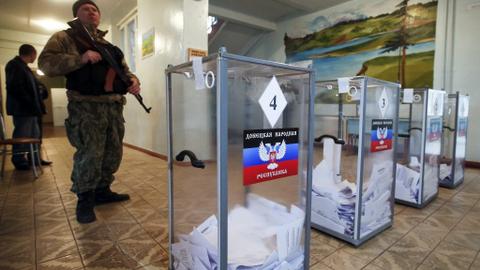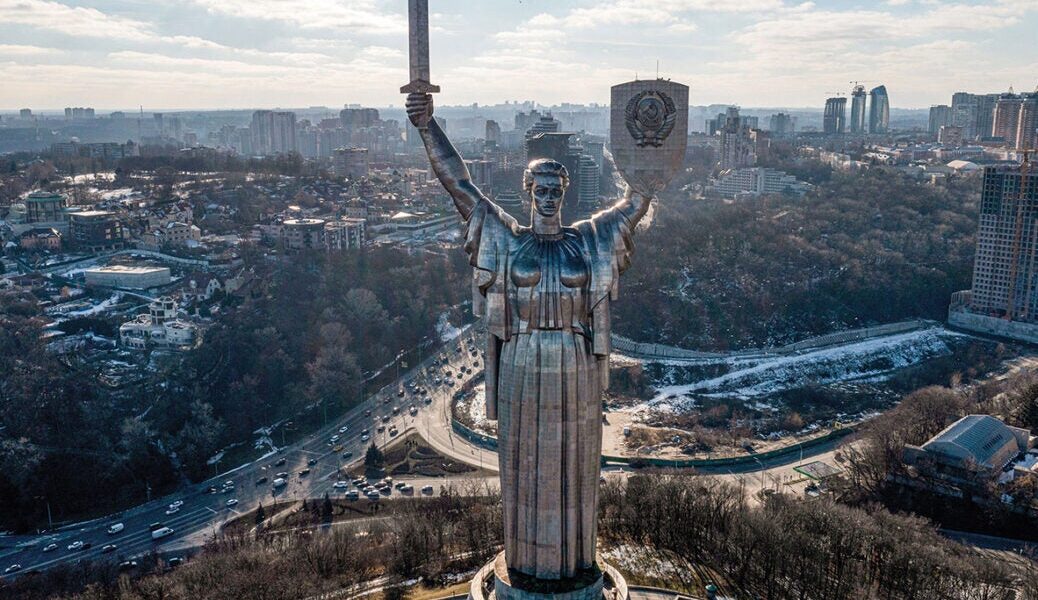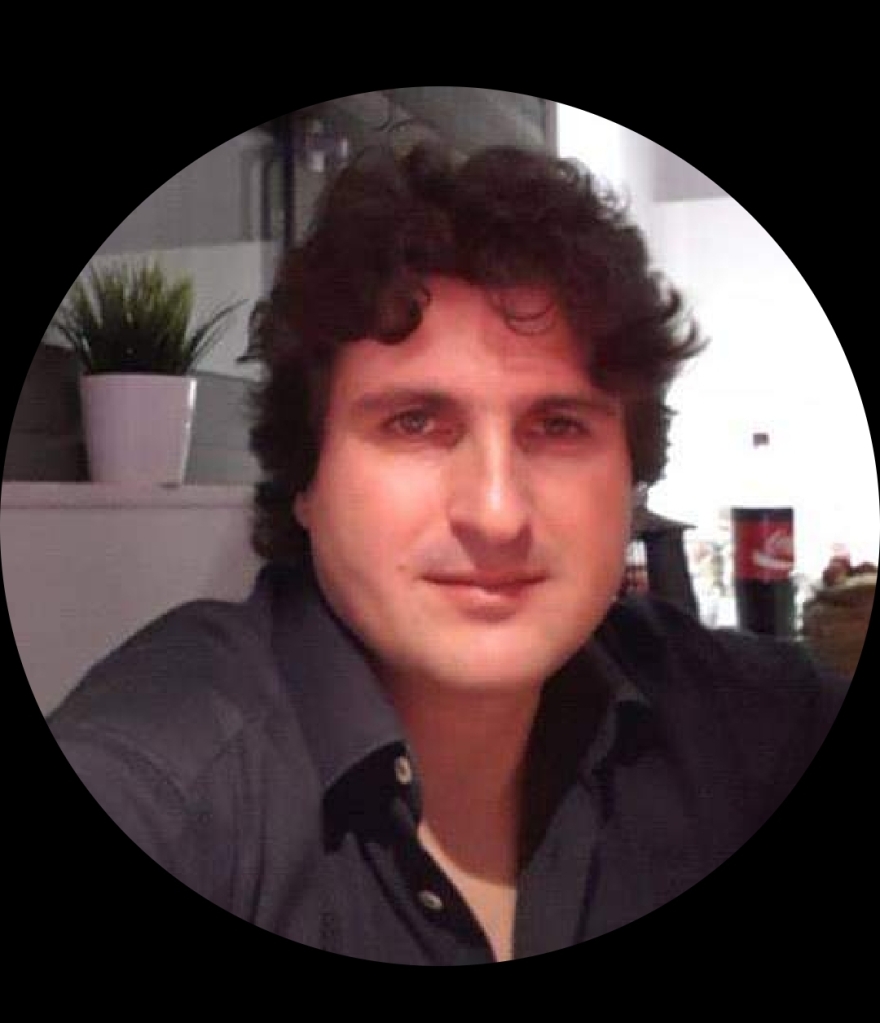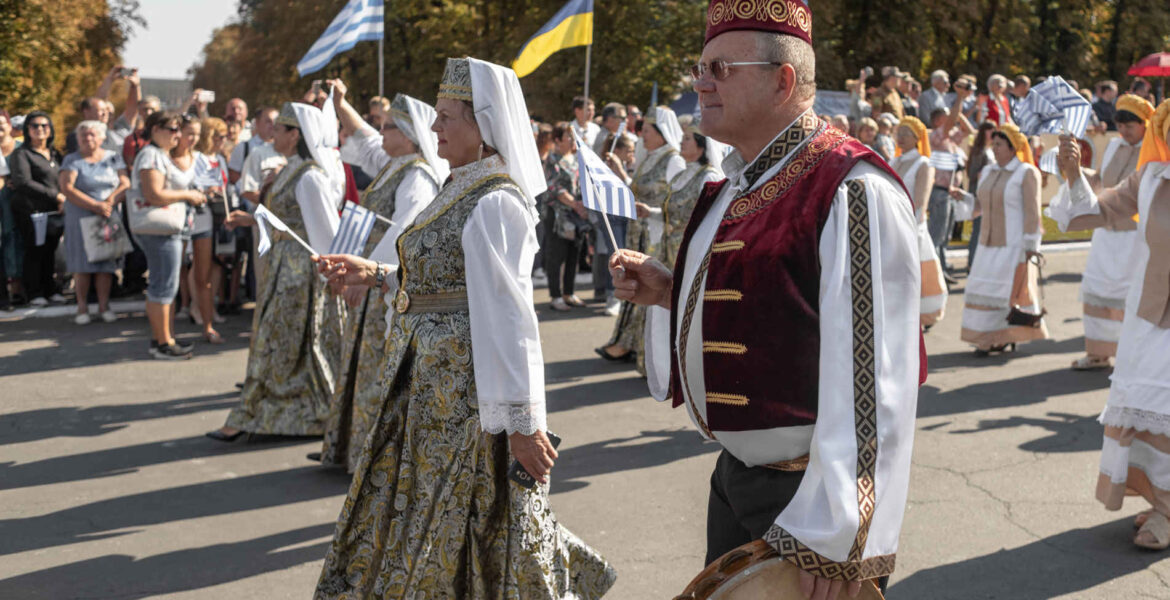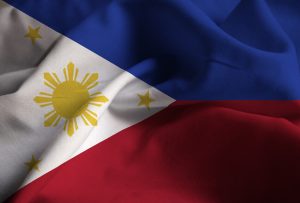How 'paranoid' Putin's Ukraine invasion could lead to 'accidental' nuclear crisis: military expert
Brad Reed
February 24, 2022

Vladimir Putin (Shutterstock)
Tom Nichols, a professor at the U.S. Naval War College and at the Harvard Extension School, has written a lengthy piece for The Atlantic about the potential for Russia's invasion of Ukraine to spiral into a nuclear crisis.
Nichols describes Russian President Vladimir Putin as "paranoid," although he doesn't believe that he's outright insane -- in other words, he does not expect Putin to directly attack a NATO country.
Rather, Nichols thinks the big risk is that a misstep by Russia's military could lead to an escalation that gets out of hand.
"There are countless opportunities for such errors in the chaos now overtaking Ukraine," he writes. "The Russians might shoot at NATO aircraft after misidentifying them. Or they might incorrectly believe that Russian aircraft have been attacked by NATO forces. They might suffer a misfire or a targeting error of some kind that puts Russian ordnance on NATO territory. Europe’s a crowded continent, and no place for a jumpy trigger finger, but accidents are an unavoidable part of warfare."
Nichols also raises the "frightening possibility that Putin will increase the alert status of his nuclear forces for his own reasons, leaving the Americans no choice but to raise their alert status," and thus set the stage for a nuclear standoff.
THE ATLANTIC
Read the whole analysis here.
Brad Reed
February 24, 2022

Vladimir Putin (Shutterstock)
Tom Nichols, a professor at the U.S. Naval War College and at the Harvard Extension School, has written a lengthy piece for The Atlantic about the potential for Russia's invasion of Ukraine to spiral into a nuclear crisis.
Nichols describes Russian President Vladimir Putin as "paranoid," although he doesn't believe that he's outright insane -- in other words, he does not expect Putin to directly attack a NATO country.
Rather, Nichols thinks the big risk is that a misstep by Russia's military could lead to an escalation that gets out of hand.
"There are countless opportunities for such errors in the chaos now overtaking Ukraine," he writes. "The Russians might shoot at NATO aircraft after misidentifying them. Or they might incorrectly believe that Russian aircraft have been attacked by NATO forces. They might suffer a misfire or a targeting error of some kind that puts Russian ordnance on NATO territory. Europe’s a crowded continent, and no place for a jumpy trigger finger, but accidents are an unavoidable part of warfare."
Nichols also raises the "frightening possibility that Putin will increase the alert status of his nuclear forces for his own reasons, leaving the Americans no choice but to raise their alert status," and thus set the stage for a nuclear standoff.
THE ATLANTIC
Read the whole analysis here.
PAYWALL
By JOHN DANISZEWSKI

In this image made from video released by the Russian Presidential Press Service, Russian President Vladimir Putin addressees the nation in Moscow, Russia, Thursday, Feb. 24, 2022. Russian troops launched their anticipated attack on Ukraine on Thursday, as Putin cast aside international condemnation and sanctions and warned other countries that any attempt to interfere would lead to "consequences you have never seen." (Russian Presidential Press Service via AP)
WARSAW, Poland (AP) — It has been a long time since the threat of using nuclear weapons has been brandished so openly by a world leader, but Vladimir Putin has just done it, warning in a speech that he has the weapons available if anyone dares to use military means to try to stop Russia’s takeover of Ukraine.
The threat may have been empty, a mere baring of fangs by the Russian president, but it was noticed. It kindled visions of a nightmarish outcome in which Putin’s ambitions in Ukraine could lead to a nuclear war through accident or miscalculation.
“As for military affairs, even after the dissolution of the USSR and losing a considerable part of its capabilities, today’s Russia remains one of the most powerful nuclear states,” Putin said, in his pre-invasion address early Thursday.
“Moreover, it has a certain advantage in several cutting-edge weapons. In this context, there should be no doubt for anyone that any potential aggressor will face defeat and ominous consequences should it directly attack our country.”
By merely suggesting a nuclear response, Putin put into play the disturbing possibility that the current fighting in Ukraine might eventually veer into an atomic confrontation between Russia and the United States.
That apocalyptic scenario is familiar to those who grew up during the Cold War, an era when American school children were told to duck and cover under their desks in case of nuclear sirens, But that danger gradually receded from the public imagination after the fall of the Berlin Wall and the dissolution of the Soviet Union, when the two powers seemed to be on a glide path to disarmament, democracy and prosperity.
Before that, even young people understood the terrifying .idea behind the strategy of mutual assured destruction -- MAD for short -- a balance in nuclear capabilities that was meant to keep hands on each side off of the atomic trigger, knowing that any use of the doomsday weapons could end in the annihilation of both sides in a conflict.
And amazingly, no country has used nuclear weapons since 1945, when President Harry Truman dropped bombs on Japan in the belief that it was the surest way to end World War II quickly. It did, but at a loss of about 200,000 mostly civilian lives in Hiroshima and Nagasaki. Around the world, even today, many regard that as a crime against humanity and question if it was worth it.
For a brief time after the war, the United States had a nuclear monopoly. But a few years after, the Soviet Union announced its own nuclear bomb and the two sides of the Cold War engaged in an arms race to build and develop increasingly more powerful weapons over the next few decades.
With the end of the Soviet Union in 1991, and its transformation to a hoped-for democracy under Boris Yeltsin, the United States and Russia agreed to limits on their armaments. Other post-Soviet countries like Ukraine, Kazakhstan and Belarus voluntarily gave up the nukes on their territory after the Soviet Union dissolved.
In recent years, if nuclear weapons were spoken of at all, it was usually in the context of stopping their proliferation to countries like North Korea and Iran. (Iran denies that it wants to possess them and North Korea has been steadily but slowly building both its nuclear weapons and its delivery mechanisms. ) President Joe Biden has been aware of the danger of nuclear war between Russia and NATO since the emergence of the crisis with Ukraine. From the start, he has said NATO would not be sending troops into Ukraine because it could trigger direct fighting between the U.S. and Russia, leading to nuclear escalation and possibly World War III.
It was a tacit admission that the United States would not take on the Russians militarily over Ukraine, and instead rely on extraordinary sanctions to gradually strangle the Russian economy.
But the admission also included another truth. When it came to fighting off a Russian invasion, Ukraine remained on its own because it is a non-treaty member and does not qualify for protection under NATO’s nuclear umbrella.
If Putin tried to attack one of the America’s NATO partners, however, that would be a different situation, because the pact is fully committed to mutual defense, Biden has said.
Knowing that Biden had already taken a military response off the table, why did Putin even bother to raise it in his speech?
In part, he may have wanted to keep the West off balance, to prevent it from taking aggressive action to defend Ukraine against Putin’s blitzkrieg drive to take over the country.
But the deeper context seemed to be his great desire to show the world that Russia is a powerful nation, not to be ignored. Putin talks repeatedly about the humiliation of Russia after the Soviet collapse. By waving his nuclear sword, he echoed the bluster with which the Soviet Union had stared down the United States and earned, in his mind, respect.
After Putin’s speech, Pentagon officials offered only a muted response to his implied threat to use nuclear weapons against any country that tried to intervene in Ukraine.
A senior defense official, speaking on condition of anonymity to discuss internal deliberations, said Thursday that U.S. officials “don’t see an increased threat in that regard,” but he would not say more.
Putin’s language touches a raw nerve in the Pentagon because it highlights a longstanding concern that he might be willing to preemptively use nuclear weapons in Europe preemptively in a crisis.
This is one reason Washington has tried for years, without success, to persuade Moscow to negotiate limits on so-called tactical nuclear weapons -– those of shorter range that could be used in a regional war. Russia has a large numerical advantage in that weaponry, and some officials say the gap is growing.
Coincidentally, the Biden administration was wrapping up a Nuclear Posture Review –- a study of possible changes to U.S. nuclear forces and the policies that govern their use –- when Russia’s troop buildup near Ukraine reached a crisis stage this month. It’s unclear whether that study’s results will be reworked in light of the Russian invasion.
___
EDITOR’S NOTE — John Daniszewski, an AP vice president and former correspondent in Eastern Europe, has written about European affairs since the 1980s.
___
AP national defense writer Robert Burns contributed to this story from Washington.

In this image made from video released by the Russian Presidential Press Service, Russian President Vladimir Putin addressees the nation in Moscow, Russia, Thursday, Feb. 24, 2022. Russian troops launched their anticipated attack on Ukraine on Thursday, as Putin cast aside international condemnation and sanctions and warned other countries that any attempt to interfere would lead to "consequences you have never seen." (Russian Presidential Press Service via AP)
WARSAW, Poland (AP) — It has been a long time since the threat of using nuclear weapons has been brandished so openly by a world leader, but Vladimir Putin has just done it, warning in a speech that he has the weapons available if anyone dares to use military means to try to stop Russia’s takeover of Ukraine.
The threat may have been empty, a mere baring of fangs by the Russian president, but it was noticed. It kindled visions of a nightmarish outcome in which Putin’s ambitions in Ukraine could lead to a nuclear war through accident or miscalculation.
“As for military affairs, even after the dissolution of the USSR and losing a considerable part of its capabilities, today’s Russia remains one of the most powerful nuclear states,” Putin said, in his pre-invasion address early Thursday.
“Moreover, it has a certain advantage in several cutting-edge weapons. In this context, there should be no doubt for anyone that any potential aggressor will face defeat and ominous consequences should it directly attack our country.”
By merely suggesting a nuclear response, Putin put into play the disturbing possibility that the current fighting in Ukraine might eventually veer into an atomic confrontation between Russia and the United States.
That apocalyptic scenario is familiar to those who grew up during the Cold War, an era when American school children were told to duck and cover under their desks in case of nuclear sirens, But that danger gradually receded from the public imagination after the fall of the Berlin Wall and the dissolution of the Soviet Union, when the two powers seemed to be on a glide path to disarmament, democracy and prosperity.
Before that, even young people understood the terrifying .idea behind the strategy of mutual assured destruction -- MAD for short -- a balance in nuclear capabilities that was meant to keep hands on each side off of the atomic trigger, knowing that any use of the doomsday weapons could end in the annihilation of both sides in a conflict.
And amazingly, no country has used nuclear weapons since 1945, when President Harry Truman dropped bombs on Japan in the belief that it was the surest way to end World War II quickly. It did, but at a loss of about 200,000 mostly civilian lives in Hiroshima and Nagasaki. Around the world, even today, many regard that as a crime against humanity and question if it was worth it.
For a brief time after the war, the United States had a nuclear monopoly. But a few years after, the Soviet Union announced its own nuclear bomb and the two sides of the Cold War engaged in an arms race to build and develop increasingly more powerful weapons over the next few decades.
With the end of the Soviet Union in 1991, and its transformation to a hoped-for democracy under Boris Yeltsin, the United States and Russia agreed to limits on their armaments. Other post-Soviet countries like Ukraine, Kazakhstan and Belarus voluntarily gave up the nukes on their territory after the Soviet Union dissolved.
In recent years, if nuclear weapons were spoken of at all, it was usually in the context of stopping their proliferation to countries like North Korea and Iran. (Iran denies that it wants to possess them and North Korea has been steadily but slowly building both its nuclear weapons and its delivery mechanisms. ) President Joe Biden has been aware of the danger of nuclear war between Russia and NATO since the emergence of the crisis with Ukraine. From the start, he has said NATO would not be sending troops into Ukraine because it could trigger direct fighting between the U.S. and Russia, leading to nuclear escalation and possibly World War III.
It was a tacit admission that the United States would not take on the Russians militarily over Ukraine, and instead rely on extraordinary sanctions to gradually strangle the Russian economy.
But the admission also included another truth. When it came to fighting off a Russian invasion, Ukraine remained on its own because it is a non-treaty member and does not qualify for protection under NATO’s nuclear umbrella.
If Putin tried to attack one of the America’s NATO partners, however, that would be a different situation, because the pact is fully committed to mutual defense, Biden has said.
Knowing that Biden had already taken a military response off the table, why did Putin even bother to raise it in his speech?
In part, he may have wanted to keep the West off balance, to prevent it from taking aggressive action to defend Ukraine against Putin’s blitzkrieg drive to take over the country.
But the deeper context seemed to be his great desire to show the world that Russia is a powerful nation, not to be ignored. Putin talks repeatedly about the humiliation of Russia after the Soviet collapse. By waving his nuclear sword, he echoed the bluster with which the Soviet Union had stared down the United States and earned, in his mind, respect.
After Putin’s speech, Pentagon officials offered only a muted response to his implied threat to use nuclear weapons against any country that tried to intervene in Ukraine.
A senior defense official, speaking on condition of anonymity to discuss internal deliberations, said Thursday that U.S. officials “don’t see an increased threat in that regard,” but he would not say more.
Putin’s language touches a raw nerve in the Pentagon because it highlights a longstanding concern that he might be willing to preemptively use nuclear weapons in Europe preemptively in a crisis.
This is one reason Washington has tried for years, without success, to persuade Moscow to negotiate limits on so-called tactical nuclear weapons -– those of shorter range that could be used in a regional war. Russia has a large numerical advantage in that weaponry, and some officials say the gap is growing.
Coincidentally, the Biden administration was wrapping up a Nuclear Posture Review –- a study of possible changes to U.S. nuclear forces and the policies that govern their use –- when Russia’s troop buildup near Ukraine reached a crisis stage this month. It’s unclear whether that study’s results will be reworked in light of the Russian invasion.
___
EDITOR’S NOTE — John Daniszewski, an AP vice president and former correspondent in Eastern Europe, has written about European affairs since the 1980s.
___
AP national defense writer Robert Burns contributed to this story from Washington.

